Kittel: I'm trying to live like a monk so I can get back to my best
German sprinter determined to get back on track after disastrous 2018
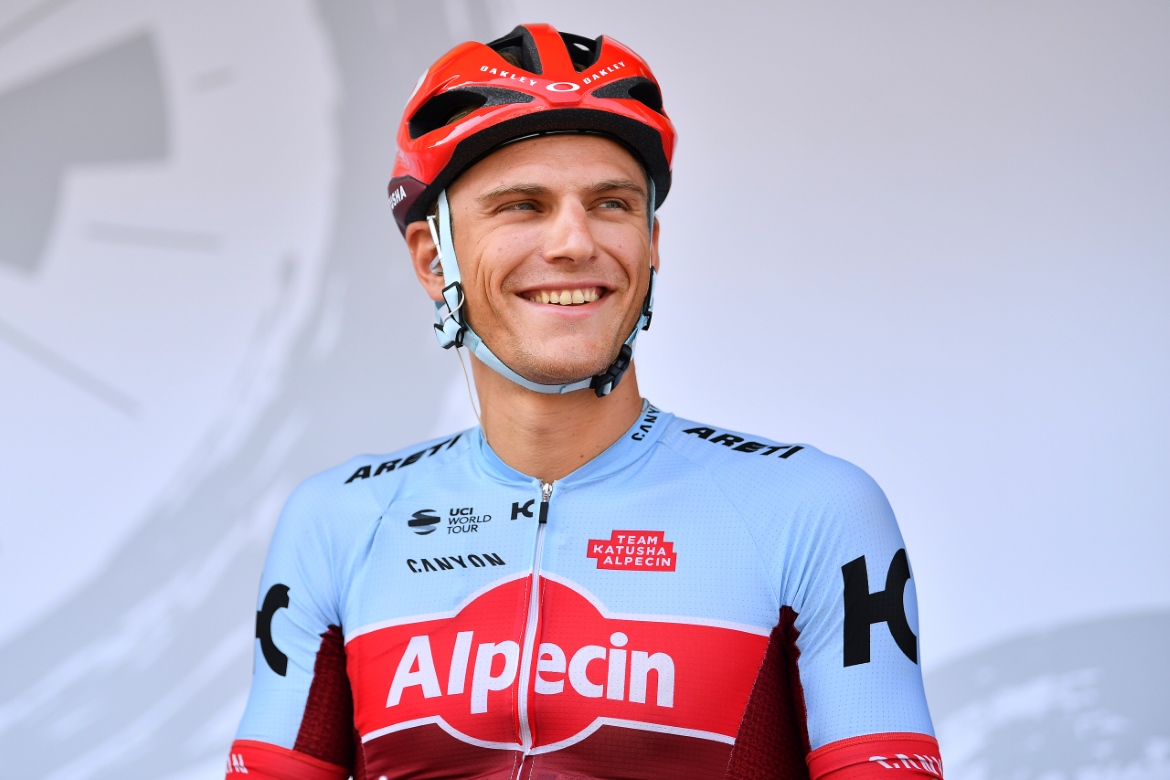
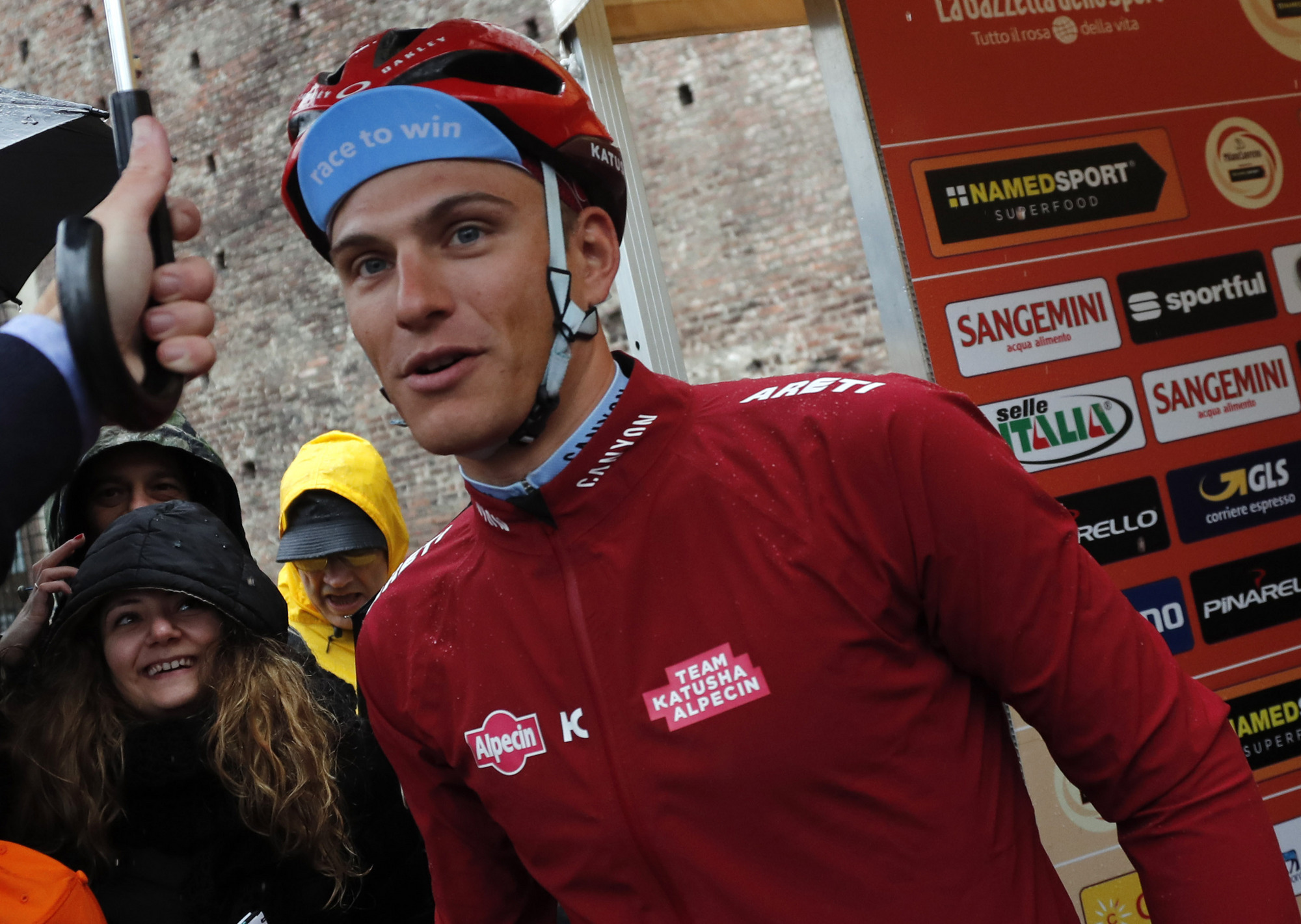
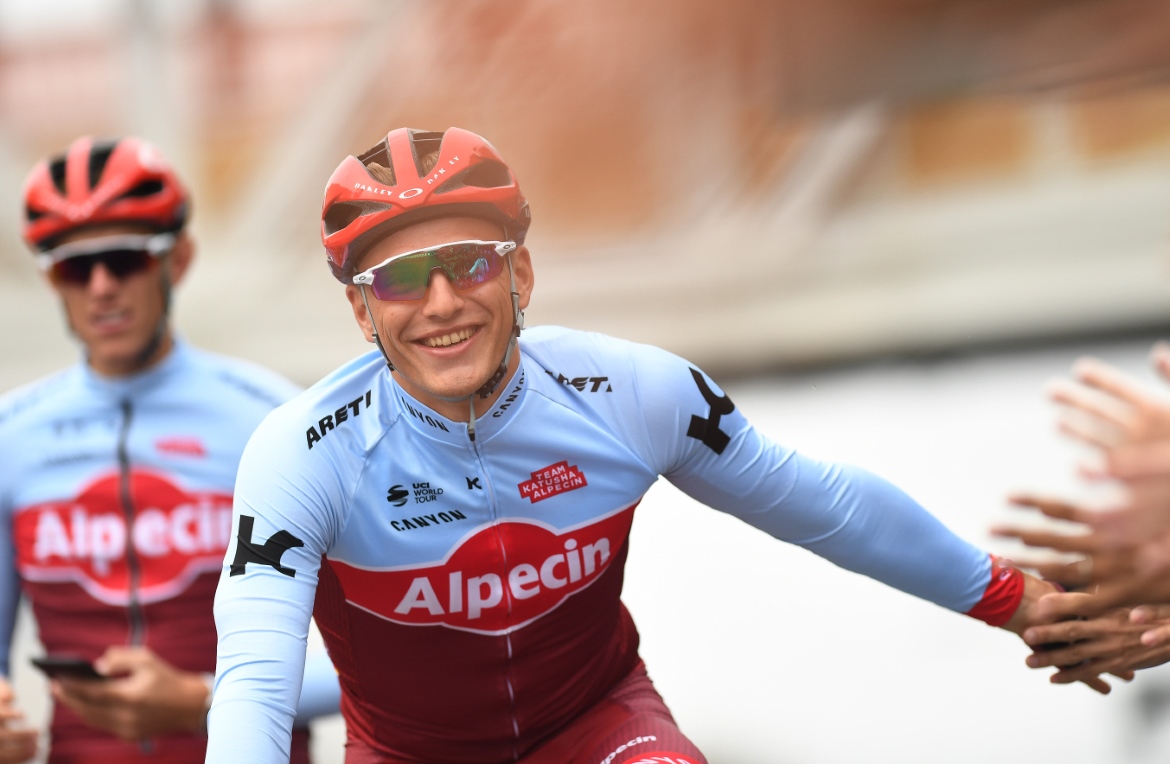
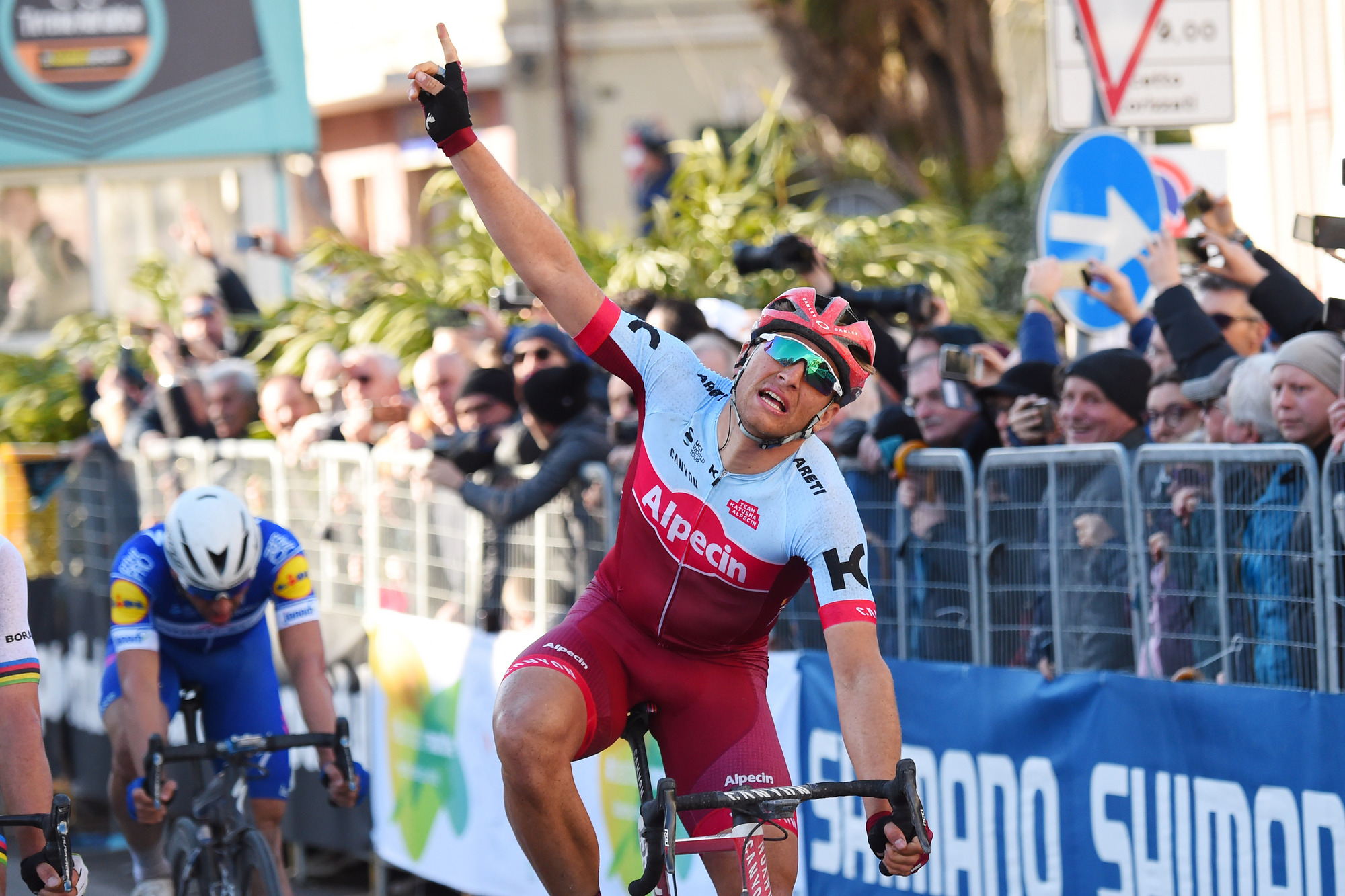
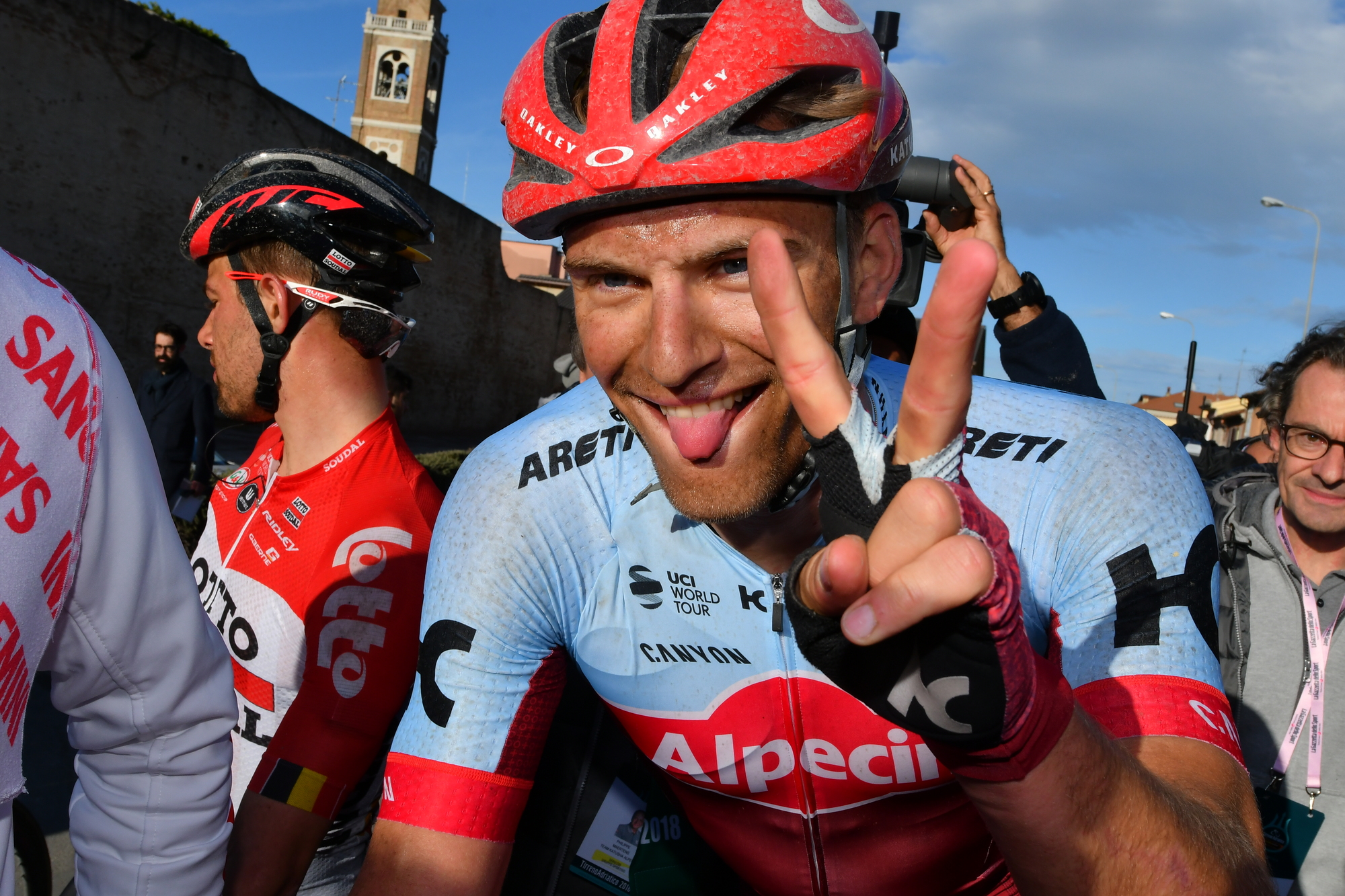
German sprinter Marcel Kittel is optimistic that he can bounce back to winning ways after a disastrous 2018 season that saw him win just two sprints in March, with his Katusha-Alpecin squad taking just five wins during the whole of the season.
Medical tests ruled out any kind of virus but, in agreement with his team, Kittel ended his season in early September to rest up, reset and try to get back to his best.
Kittel was signed for the 2018 season as the blond-haired poster boy for Katusha-Alpecin as they looked to transform from being a Russian-backed set-up to a global WorldTour squad able to attract major sponsors and international riders.
A new lead-out train was built and developed during training camps, but then rarely seemed to work in races. Other teams were better and faster, or Kittel lost wheels, lacked speed and the aggression to fight for position in the ever-more hectic sprint finishes. He and the team seemed to enter a demoralising downward spiral that was impossible to stop.
Kittel won two stages at Tirreno-Adriatico in March, but that turned out to be the high-point of his season. He was third behind Fernando Gaviria (Quick-Step) and Peter Sagan (Bora-Hansgrohe) in the first sprint at the Tour de France, but his race petered out thereafter. He finished outside the time limit in the Alps, like many of his fellow sprinters, and never got his season back on track.
Criticism by directeur sportif Dimitri Konyshev in an interview with L'Equipe caused as much tension as the lack of results. Konyshev described Kittel as "egotistical", saying: "We pay him a lot of money but he is only interested in himself.:
There were reports that Kittel wanted to break his contract and leave Katusha-Alpecin a year early, but he publicly denied that and has always refused to go public about any internal problems with his teammates and team management.
Get The Leadout Newsletter
The latest race content, interviews, features, reviews and expert buying guides, direct to your inbox!
Kittel tried to bounce back at the BinckBank Tour in August, and on home roads at the new Deutschland Tour later that month. He finished an encouraging second on the opening stage of the BinckBank Tour but then quit the Deutschland Tour on stage 2. He underwent medical checks but no specific problem was found despite him feeling fatigued.
Kittel has been described as "high maintenance" by one of his former directeurs sportifs, but so are many team leaders and sprinters. The German's career has been marked by several superb highs, with four Tour de France victories in 2014. In 2015, his final season with Giant-Shimano was all but wiped out by a long-running illness, but he bounced back in 2016 after moving to Quick-Step Floors.
In 2017, he won five stages at the Tour de France but crashed out of the race while wearing the green points jersey. He was considered the best sprinter in the world, but his career then dipped dramatically in 2018.
Kittel rode both the Saitama and Shanghai Tour de France criteriums in November, symbolically marking the start of his 2019 season. The time away from the peloton had given him time to reflect on what went wrong in 2018 and fired up his optimism for 2019, as he told Cyclingnews in Japan.
Cyclingnews: Marcel, you finished your season early and had a good break from racing and training. The tests to try to find out the cause of your fatigue came back negative, but have you had time to understand what went wrong in 2018?
Marcel Kittel: It's not the season I wanted, for sure. I'm not happy with how things went because I always try to give my best. But I felt that at the end of the season, and especially after the Tour de France, I was somehow empty. I've looked for the reasons behind it and now I think it was a lot of small things that came together and made me tired. The results from all the tests said I wasn't sick and didn't have a virus, which is good news for me.
I'm really happy that the team gave me the time to finish early, so that I could recover well. I just took a big break in September and early October and since starting training again, I really feel physically different, and much better. I can feel that I'm recovering well. It's nice to be confident to go into my winter training, and to concentrate on getting ready for 2019 and being better.
CN: You have proved your ability in the past, winning multiple stages in the Tour de France and other sprints. This season must have been very frustrating. Did the lack of success weigh on your shoulders? Did you feel under pressure to win after moving from Quick-Step Floors to Katusha-Alpecin?
MK: I think it's part of my mentality to always try to do my best – to be the best at races. So it's very frustrating when it didn't come together in 2018 or in 2015, when I really struggled, too. But in hindsight, I think it's part of a rider's career – that things sometimes go up and down. No two seasons are the same.
When things go bad, it forces you to reconsider everything you do, to revaluate what's important and where you focus your energy, or where not to, because it just wastes energy. That's what I've done this time. Now I just want to focus on my sport. I'm trying to live like a monk so that I can get back to my best. It's a desire that almost sounds a little empty, but there's a lot of truth to it when you're a top-level athlete. You have to focus on your training, on your races, and that's my lesson from 2018. It's not that I did crazy things, but now I realise I need to focus on the basics.
CN: What exactly were the problems in 2018? Was it the new lead-out at Katusha-Alpecin? Was it you? Or have the sprints changed and become more difficult?
MK: No, no, no. It's not about the team. I honestly think it all started after my crash at the 2017 Tour de France. I did a big part of that Tour, but crashed hard, and very soon afterwards I was back training and racing, and so never really fully recovered. I was busy during the off-season and there was also the change in teams. That takes up energy because you want to invest time and energy into a new project, you want to get to know everyone. It's also hard to fit into a new team, just like it is for anyone to fit in to a new company at work. There's no one thing or one person to really blame for it.
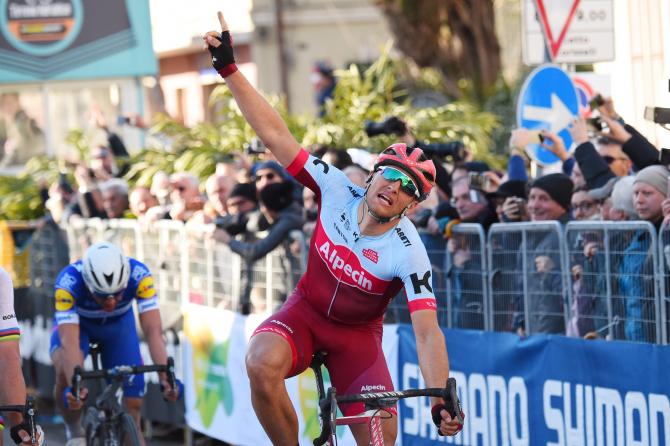
Back to basics
Kittel turned 30 in May, and will be in the second year of his highly paid contract with Katusha-Alpecin in 2019. Ilnur Zakarin remains as their Grand Tour leader, but Tony Martin has left for LottoNL-Jumbo, with seven other riders also leaving and six new riders coming in.
Jens Debusschere and Enrico Battaglin will give Katusha-Alpecin options in the Classics, but Kittel is again expected to anchor the team and bring in a haul of sprint victories. His lead-out train and support riders remain largely the same, with Britain's Harry Tanfield perhaps adding some speed to the sprint unit that also includes Alex Dowsett, Nils Politt, Rick Zabel and Marco Haller.
Kittel is keen to start 2019 with a clean slate and a clear head, convinced that the problems of 2018 are behind him. He's focused on his own training and form rather than trying to lead the entire Katusha-Alpecin team.
CN: After the problems of 2018, how are you approaching 2019?
MK: I've had this bad year, but there's really no reason to think things won't be much better in 2019. I'm confident in myself and confident in the team. We're working hard this winter and we're focused on the goals we've set ourselves. You can't do much more than that.
I'll bring the same passion and the same energy into the new season as I did in 2018. I'm sure we'll get over the bad season the whole team had. That has to be our mission, and then we'll be there.
CN: Have you learned a lot about yourself due to the difficulties of 2018?
MK: I'm generally a person who thinks a lot about things – about myself and how things are going and what I can improve. That's important for me, and I think it's a good thing. It makes me ask questions about myself and what's happening around me. That's why I'm confident for next year. My mentality has always brought me back to where I've wanted to be. Now I'll enjoy the little personal changes I've made and enjoy doing some good training this winter.
I need to get back to my best by focusing on myself. I need to focus on being this lonely, top athlete who focuses on training and recovering, eats well, sleeps well. That's what I want to do this winter and in the 2019 season.
CN: A lot of science is now applied to professional cycling, but there still seems to be a human aspect to performance and racing. Do you agree?
MK: I've read some books about the mental aspects of sport, and I've talked to athletes from other sports. In professional cycling, we tend to forget how hard our sport really is. It's really demanding at the top level due to the training requirements and of course the racing. There's also all the travelling, the media duties and then everyone has a personal life, too. It all takes time and all takes energy. So if you want to do it right, you can't do anything else. You have to put yourself into a little box and forget about everything else that happens around you.
In track and field, some events perhaps only last an hour or even less, and some athletes perhaps take half a year off after an Olympics. Our sport is very hard if you ride one Grand Tour, and some guys even ride two. We finish a Grand Tour and then start racing again after just five days. That's really crazy. Of course it makes our sport special, but it's something we shouldn't forget when people fail or struggle.
CN: You said you've made changes and are trying to live like a monk. What exactly were the little changes?
MK: I've just really tried to focus on the basics. The three basics are: training, resting and good nutrition. It's not that I've done that totally wrong in the last few months, but I want to find the right balance again. That's the most important thing for me.
It perhaps sounds stupid to some people and raises the question: 'Why did he not do it before?'. Well, I did do it before, but now, thanks to the extra time to recover, I'm back at the point where everything works again. For a while it never felt right, but now I'm doing more things that make me feel better.

Stephen is one of the most experienced member of the Cyclingnews team, having reported on professional cycling since 1994. He has been Head of News at Cyclingnews since 2022, before which he held the position of European editor since 2012 and previously worked for Reuters, Shift Active Media, and CyclingWeekly, among other publications.